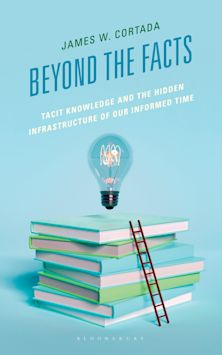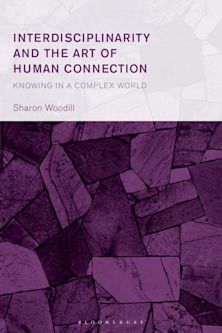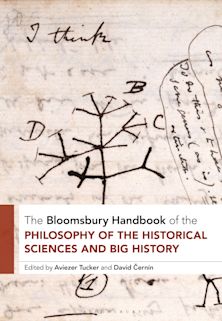Nietzsche's Naturalist Deconstruction of Truth
A World Fragmented in Late Nineteenth-Century Epistemology
Nietzsche's Naturalist Deconstruction of Truth
A World Fragmented in Late Nineteenth-Century Epistemology
Description
Nietzsche’s Naturalist Deconstruction of Truth: A World Fragmented in Late Nineteenth-Century Epistemology offers a new interpretation of Nietzsche’s discussions of truth and knowledge, covering the period from his early essay “On Truth and Lies in an Extra-Moral Sense” to his late notebooks. It places these discussions in the context of the neo-Kantian, Naturalist, Positivist, and Pragmatic schools influential in Nietzsche’s late nineteenth-century Europe. Peter Bornedal argues for a view of Nietzsche’s epistemological thought as an elaboration of this paradigm: proposing ideas that are anti-metaphysical and anti-theological in their polemic orientation, and in general promoting new scientific naturalist ideals in the discussions of knowledge. Bornedal suggests that the rational pursuit of these new ideals to the unencumbered mind logically leads to Nihilism in its most profound epistemological sense. Nietzsche’s “critique of metaphysics” is thus seen as having sprung from sources different from and, at times, in patent opposition to more recent postmodern and deconstructionist critiques. This book contextualizes Nietzsche in relation to a number of philosophical peers and juxtaposes him to contemporary thinkers in a way that resolves some of the difficulties that have plagued recent Nietzsche scholarship.
Table of Contents
Part I: Nietzsche’s Early Theory of Truth and Knowledge
A: Part I of Truth and Lies
B: Part II of Truth and Lies
C: Human Knowledge from Truth and Lies to Human, all too Human
Part II: Nietzsche’s Positivist-Pragmatic Paradigm
A: Nietzsche’s Later Theories of Truth and Knowledge
B: Nietzsche and Critical Positivism
C. Final Assessment
Appendix
“On Truth and Lies in a Non-Moral Sense”
Endnotes
List of Literature
About the Author
Product details
| Published | 03 Jan 2020 |
|---|---|
| Format | Ebook (Epub & Mobi) |
| Edition | 1st |
| Extent | 340 |
| ISBN | 9781498579315 |
| Imprint | Lexington Books |
| Illustrations | 3 b/w illustrations; 4 tables; |
| Publisher | Bloomsbury Publishing |
Reviews

ONLINE RESOURCES
Bloomsbury Collections
This book is available on Bloomsbury Collections where your library has access.



































